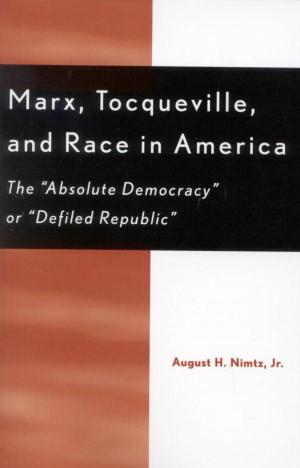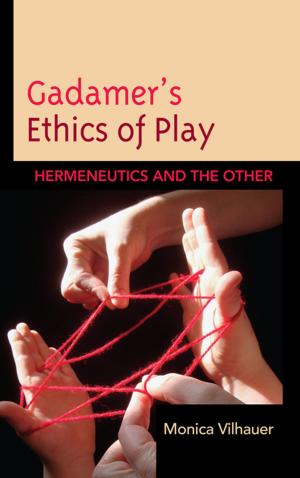Teacher–Student Power Relations in Primary Schools in Hong Kong
Nonfiction, Reference & Language, Education & Teaching, Student & Student Life, Educational Theory, Educational Psychology, Administration| Author: | Mei-Yee Wong | ISBN: | 9780739181737 |
| Publisher: | Lexington Books | Publication: | December 11, 2014 |
| Imprint: | Lexington Books | Language: | English |
| Author: | Mei-Yee Wong |
| ISBN: | 9780739181737 |
| Publisher: | Lexington Books |
| Publication: | December 11, 2014 |
| Imprint: | Lexington Books |
| Language: | English |
This book examines, from a sociological perspective, teacher-student power relations in classroom learning and teaching. The case study consists of four Hong Kong primary schools—and sixteen classrooms therein—that were selected as research sites to explore the concept of teacher-student power relations. Observations, individual interviews, and document analysis were the main data collection methods employed. Wong provides the historical context for the issue of teacher-student power relationship by reviewing the traditional Chinese cultures and values, in particular the values of respect for authority and for teachers, and demonstrates the intermingling of Chinese and Western cultures in contemporary Hong Kong Chinese society.
She reviews the major educational initiatives carried out in Hong Kong since the 1970s, showing how Western educational policies promoting student-centric teaching modes have encouraged changes in classroom culture. With reference to the observed seventy-three lessons, the study identified three patterns of teacher-student power relations—Teacher Domination, Relatively Balanced Opportunity for Power Sharing, and Student Self-Empowerment—each involving different degrees of power being exercised by teacher and students. The coexistence of these three power patterns and the two corresponding power situations (student empowerment and disempowerment) can be explained as the result of multileveled, intertwined interactions among six factors related to social culture, education policy, school and classroom contexts, and to the individual players concerned. The book thus contributes to the understanding of teacher-student power relations in the context of Hong Kong by proposing a theoretical framework that reflects local socio-cultural, educational, and school contexts.
This book examines, from a sociological perspective, teacher-student power relations in classroom learning and teaching. The case study consists of four Hong Kong primary schools—and sixteen classrooms therein—that were selected as research sites to explore the concept of teacher-student power relations. Observations, individual interviews, and document analysis were the main data collection methods employed. Wong provides the historical context for the issue of teacher-student power relationship by reviewing the traditional Chinese cultures and values, in particular the values of respect for authority and for teachers, and demonstrates the intermingling of Chinese and Western cultures in contemporary Hong Kong Chinese society.
She reviews the major educational initiatives carried out in Hong Kong since the 1970s, showing how Western educational policies promoting student-centric teaching modes have encouraged changes in classroom culture. With reference to the observed seventy-three lessons, the study identified three patterns of teacher-student power relations—Teacher Domination, Relatively Balanced Opportunity for Power Sharing, and Student Self-Empowerment—each involving different degrees of power being exercised by teacher and students. The coexistence of these three power patterns and the two corresponding power situations (student empowerment and disempowerment) can be explained as the result of multileveled, intertwined interactions among six factors related to social culture, education policy, school and classroom contexts, and to the individual players concerned. The book thus contributes to the understanding of teacher-student power relations in the context of Hong Kong by proposing a theoretical framework that reflects local socio-cultural, educational, and school contexts.















